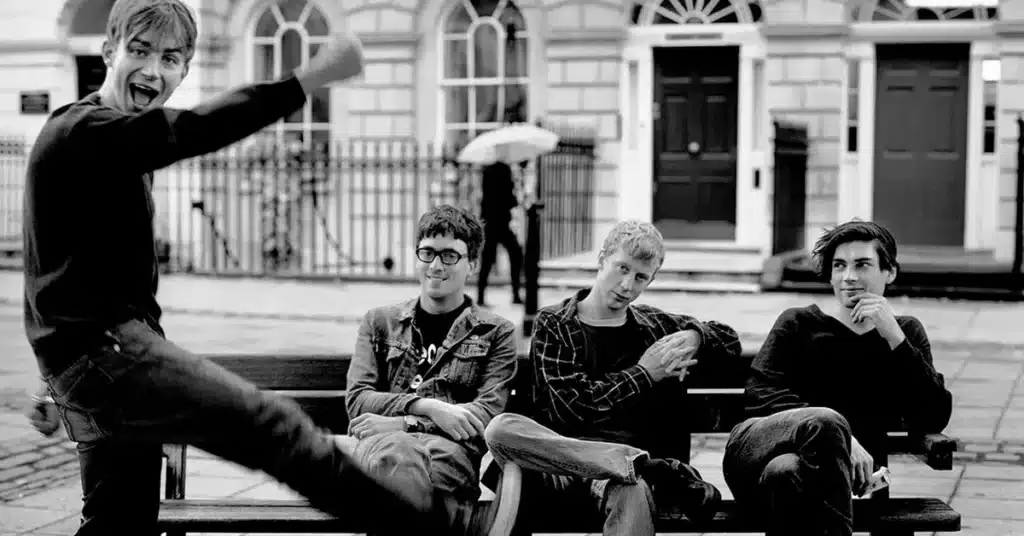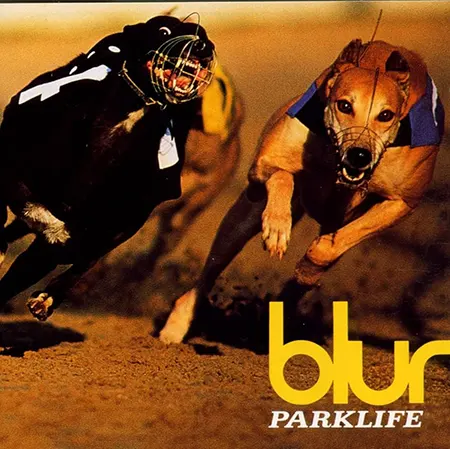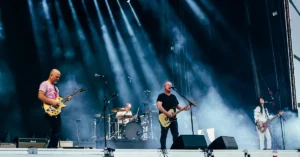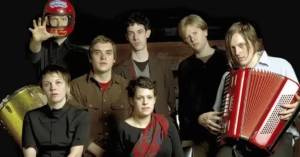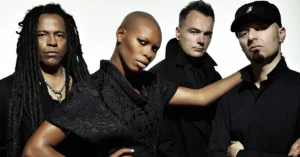Blur: Architects of Britpop and Masters of Musical Evolution
Blur. Formation and Early Years
Blur is a British rock band formed in London in 1988 by Damon Albarn (vocals, keyboards), Graham Coxon (guitar, vocals), Alex James (bass), and Dave Rowntree (drums). Initially influenced by the Madchester scene and shoegaze, Blur soon became one of the leading figures of the movement of the 1990s, known for their clever songwriting, catchy melodies, and distinctly British identity.
Blur. Musical Style and Influences
Blur’s sound is notable for its blend of alternative rock, pop, and indie, with influences ranging from punk and new wave to British guitar pop of the 1960s. Throughout their career, they have continually reinvented their style, from the raw energy of their debut to the more experimental and artful later works.
Their lyrics often explore themes of British life and culture, personal introspection, and social commentary, marked by Damon Albarn’s witty and observational writing style. The interplay between Albarn’s melodic vocals and Coxon’s dynamic guitar work has been central to their signature sound.
Blur. Key Albums and Career Highlights
Leisure (1991)
Blur’s debut album showcased a youthful and upbeat sound with tracks like “She’s So High” and “There’s No Other Way.” It laid the foundation for their future success.
Modern Life Is Rubbish (1993)
This album marked a turning point, with a stronger emphasis on British themes and sharper songwriting. It helped Blur distinguish themselves from the grunge-dominated American scene.
Parklife (1994)
A defining album of Britpop, Parklife combined catchy tunes, sharp social commentary, and an eclectic mix of styles. Hits like “Girls & Boys,” “Parklife,” and “End of a Century” propelled Blur to the forefront of British music.
The Great Escape (1995)
Continuing their Britpop dominance, this album featured energetic tracks like “Country House” and “The Universal.” It captured the rivalry with Oasis, which symbolized the Britpop era’s cultural moment.
Blur (1997)
A major stylistic shift, this self-titled album embraced a more lo-fi, indie rock sound influenced by American alternative bands. The hit single “Song 2” became a global anthem.
13 (1999)
An experimental and introspective album marked by darker tones and more complex arrangements. It showed the band’s willingness to evolve beyond Britpop conventions.
Think Tank (2003)
Recorded mainly as a trio without Coxon for much of the album, Think Tank features a more electronic and atmospheric sound. It includes the acclaimed single “Out of Time.”
Blur. Reunion and Later Years
After a hiatus, Blur reunited with Graham Coxon in 2009, touring extensively and reigniting their fan base. They have since released new music and continue to perform, celebrated for their enduring legacy and influence.
Blur. Legacy and Influence
Blur is widely credited with shaping the Britpop movement and revitalizing British rock music in the 1990s. Their innovative blending of pop, rock, and experimental sounds has influenced countless artists.
The band’s rivalry with Oasis is one of the most famous in rock history, symbolizing the cultural clash between different British music scenes.
Interesting Facts
- Damon Albarn is also the frontman of , a successful virtual band project.
- Blur’s “Song 2” is famous for its explosive energy and “woo-hoo” chorus.
- The band’s name was chosen randomly and has no particular meaning.
- They were pioneers in the Britpop movement, which emphasized British culture during the 1990s.
Conclusion
Blur remains a vital and innovative force in rock music, continuously evolving their sound while staying true to their British roots. Their legacy as pioneers of Britpop and their fearless experimentation make them one of the most respected and beloved bands in modern music history.

